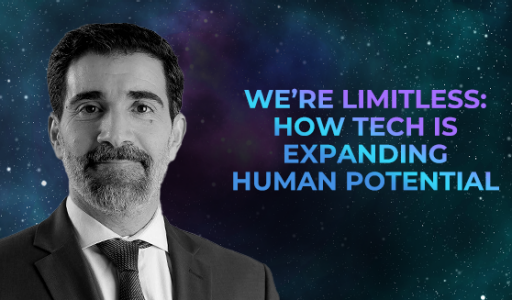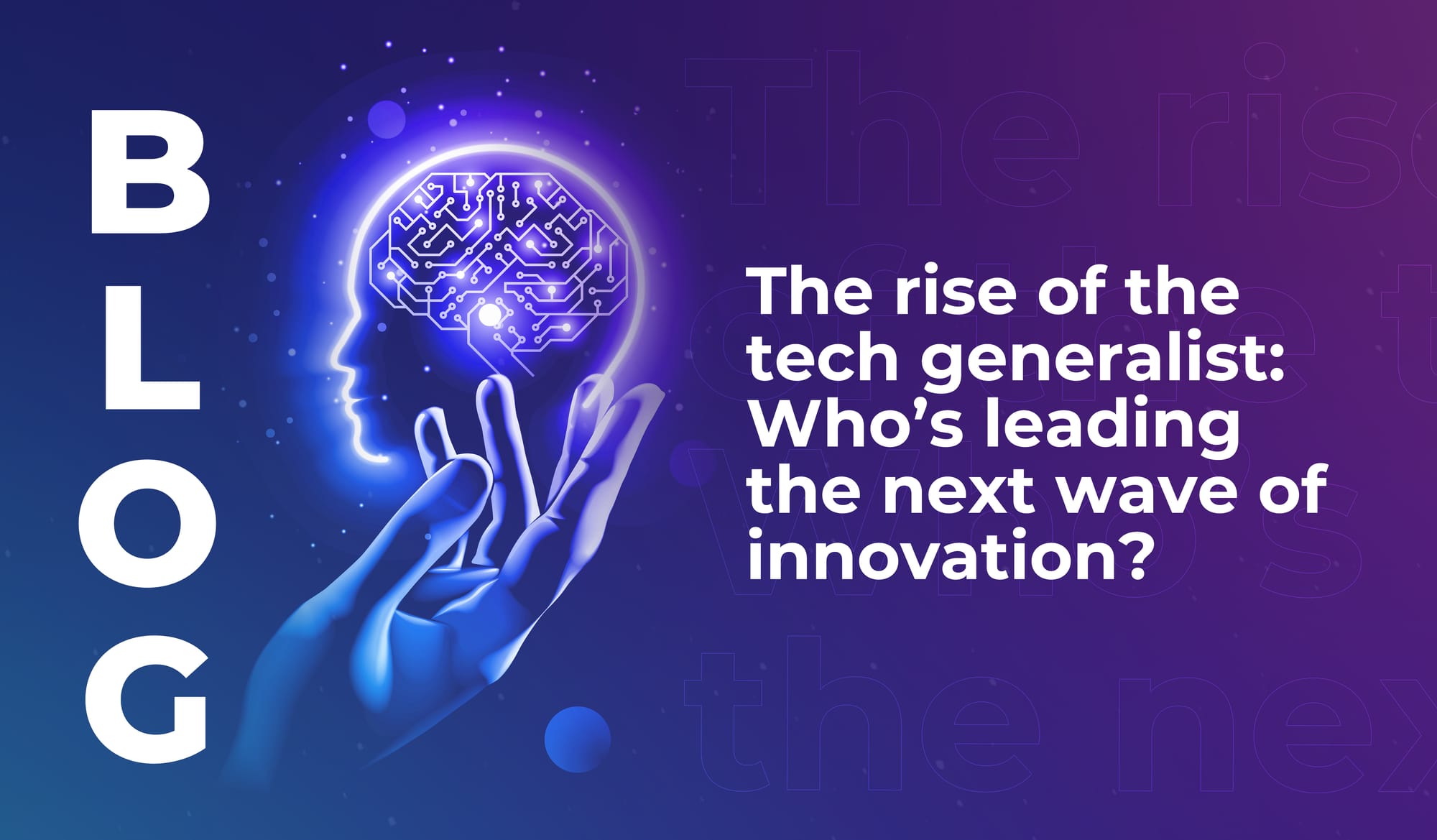
Tech careers with impact: The power of investing
If you’ve ever thought about becoming a tech investor, read this – learn why investors are the quiet force shaping the future of the industry.


Scientists have long tried to figure out exactly how far human beings can go before we hit our outermost limits. For millennia, we’ve been creating technology to overcome the limitations of our physical bodies – and now we’re turning to tech to expand the limits of our minds.
Over the last few years experts across a number of fields have been asking whether we’re close to reaching the limits of Homo Sapien. Our lifespan has been extended and our top athletes are ticking off record speeds and strength every year. At the recently concluded World Athletics Championships in Oregon, for example, Armand Duplantis broke the pole vault record by jumping 6.21m, and Sydney McLaughlin became the first female hurdler to go under 51 seconds in the 400m hurdles.
But a detailed review of research in the journal Frontiers in Physiology in 2017 noted that humans are a ‘delimited organism’, restricted not simply by our physiology, but shaped by the way we interact with our environment. “However,” the authors pointed out, “mankind is now the major actor implicated in its own environment alterations.”
Basically, our environment alters us, but we also alter our environment. Anthropologists have been studying this for a few decades now, under the academic approach of phenomenology – in his 2011 book Being Alive: Essays on Movement Tim Ingold (a British anthropologist) wrote:
“Bathed in light, submerged in sound and rapt in feeling, the sentient body, at once both perceiver and producer, traces the paths of the world’s becoming in the very course of contributing to its ongoing renewal.”
We perceive the world and at the same time (through the act of perceiving it) we make the world what it is. And we have the cognitive capacity to do that in a way that extends our physical and intellectual limitations.
A 2020 article in the journal Trends in Cognitive Science looked at how human intelligence can be understood through its limitations. Those limitations can be rounded up into three categories: time, computation, and communication. And if we take those limitation categories from cognitive science and use machine learning to solve them, we really could use tech to unlock infinite potential.
AI could competently undertake complex tasks with such great time efficiency that our species is no longer held back by the ticking of the clock. The quantum computer of the future could power technological developments beyond our current imagination. And if the entire population of the world is connected via high-speed internet, global communications will transcend geography and language.
At #LEAP22, Osama Al Zoubi (Chief Technology Officer at CISCO MEA) said he believes this to be the case: technology can be the enabler for limitless human potential. Today, he said, technology is “disrupting and transforming everything we do.”
For Al Zoubi and CISCO, a priority right now is to “connect the unconnected,” because when that happens we’ll create vast opportunities around the world, “hence creating limitless possibility, that will add a potential GDP of more than $6.7 trillion, and lift more than 500 million people out of poverty.”
By extending access to new technologies to those communities and individuals who have so far been left behind, the playing field will be levelled. Al Zoubi noted that historically only those with the finances and resources to go to the best universities and network with top funding bodies and VCs could launch a successful, innovative startup. But today, “all you need is a device that connects you to the innovation platform.”
When we’re talking about making human potential infinite, this is perhaps the most crucial point right now. That our species is diverse, and that in order to use tech to extend our limitations (by changing our environment, or our technological landscape, in a way that allows us to do that) we have to include everyone – not just the demographics deemed relevant by the small segments of society that are designing the tech. It’s something that came up in several other keynotes at #LEAP22, including this one by Nnenna Nwakanma, and this one on global governance for data.
“We believe the biggest task we have at hand is to bridge the digital divide, through the creation and the expansion of the internet,” said Al Zoubi.
AI and advancing computer power does have the power to dismantle the barriers that hold us back. But we have to recognise that not all barriers are made equal, and not all barriers affect all people in the same way.
Yes, AI might already be drastically increasing task competency and time efficiency – but who is benefitting, or profiting, from that?
Yes, high-speed internet tech might be enabling anyone with a connected device to become an innovator – but who really has access to that connectivity, and how can tech companies support skills acquisition among demographics who might not even know they could tap into the digital economy?
Yes, tech is developing at a rapid pace – but who’s designing it? And are they designing it to be relevant for everyone, or are they only really designing it for people like themselves?
We’re at a transformation point. We’re standing at the edge of an immense ocean of possibility, and we’re about to realise we can walk on the water. But human beings can’t become limitless if only a few of us take the leap: we have to do it together.

If you’ve ever thought about becoming a tech investor, read this – learn why investors are the quiet force shaping the future of the industry.

Tech generalists will enable emerging technologies to integrate across industries and societies in meaningful ways. We still need specialists – but we also need big-picture people.

Discover three tech sectors facing a talent shortage this year. Could you find your ideal role in a high-demand sector like cybersecurity, cloud computing, or artificial intelligence?

If you’ve ever thought about becoming a tech investor, read this – learn why investors are the quiet force shaping the future of the industry.

Tech generalists will enable emerging technologies to integrate across industries and societies in meaningful ways. We still need specialists – but we also need big-picture people.

Discover three tech sectors facing a talent shortage this year. Could you find your ideal role in a high-demand sector like cybersecurity, cloud computing, or artificial intelligence?